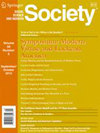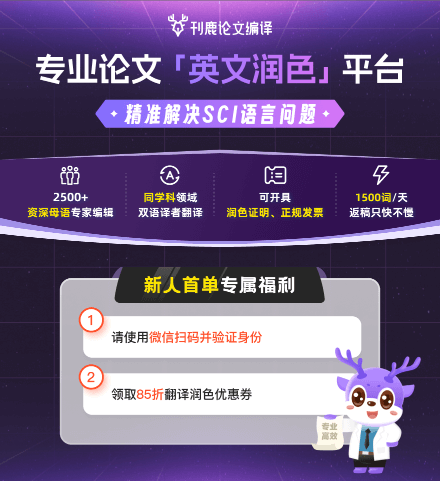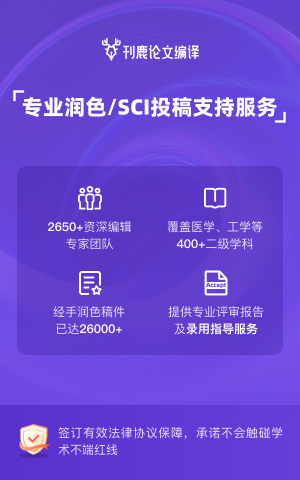
SOCIETY
SOCIETY
期刊介绍
Founded in 1962, Society enjoys a wide reputation as a journal that publishes the latest scholarship on the central questions of contemporary society. It produces six issues a year offering new ideas and quality research in the social sciences and humanities in a clear, accessible style.Society sees itself as occupying the vital center in intellectual and political debate. Put negatively, this means the journal is opposed to all forms of dogmatism, absolutism, ideological uniformity, and facile relativism. More positively, it seeks to champion genuine diversity of opinion and a recognition of the complexity of the world's issues. Society includes full-length research articles, commentaries, discussion pieces, and book reviews which critically examine work conducted in the social sciences as well as the humanities. The journal is of interest to scholars and researchers who work in these broadly-based fields of enquiry and those who conduct research in neighboring intellectual domains. Society is also of interest to non-specialists who are keen to understand the latest developments in such subjects as sociology, history, political science, social anthropology, philosophy, economics, and psychology.The journal’s interdisciplinary approach is reflected in the variety of esteemed thinkers who have contributed to Society since its inception. Contributors have included Simone de Beauvoir, Robert K Merton, James Q. Wilson, Margaret Mead, Abraham Maslow, Richard Hoggart, William Julius Wilson, Arlie Hochschild, Alvin Gouldner, Orlando Patterson, Katherine S. Newman, Patrick Moynihan, Claude Levi-Strauss, Hans Morgenthau, David Riesman, Amitai Etzioni and many other eminent thought leaders.The success of the journal rests on attracting authors who combine originality of thought and lucidity of expression. In that spirit, Society is keen to publish both established and new authors who have something significant to say about the important issues of our time.
《社会》创刊于1962年,是一份发表当代社会核心问题最新学术成果的期刊,享有广泛的声誉。它每年出版六期,以清晰易懂的风格提供社会科学和人文科学的新思想和高质量研究。社会认为自己占据了知识和政治辩论的重要中心。消极地说,这意味着杂志反对一切形式的教条主义、绝对主义、意识形态统一和肤浅的相对主义。更积极的是,它寻求倡导意见的真正多样性,承认世界问题的复杂性。社会包括完整长度的研究文章、评论、讨论文章和书评,批判性地审查在社会科学以及人文科学中进行的工作。该杂志是感兴趣的学者和研究人员谁工作在这些广泛的基础领域的调查和那些谁进行研究在邻近的知识领域。社会学也是非专业人士感兴趣的领域,他们热衷于了解社会学、历史学、政治学、社会人类学、哲学、经济学和心理学等学科的最新发展。该杂志的跨学科方法反映在自创刊以来为社会学做出贡献的各种受人尊敬的思想家身上。贡献者包括西蒙娜·德·波伏娃、罗伯特·K·默顿、詹姆斯·Q.威尔逊、玛格丽特·米德、亚伯拉罕·马斯洛、理查德·霍格特、威廉·朱利叶斯·威尔逊、阿利·霍克希尔德、阿尔文·古尔德纳、奥兰多·帕特森、凯瑟琳·S·纽曼、帕特里克·莫伊尼汉、克劳德·列维-施特劳斯、汉斯·摩根索、大卫·里斯曼、阿米塔·埃齐奥尼等许多杰出的思想领袖。该杂志的成功在于吸引了那些将思想的独创性和表达的清晰性结合在一起的作者。本着这一精神,社会热衷于出版既有和新的作者谁有一些重要的东西说,我们这个时代的重要问题。
| 年发文量 | 52 |
| 国人发稿量 | 2 |
| 国人发文占比 | 4.11% |
| 自引率 | 0.0% |
| 平均录取率 | - |
| 平均审稿周期 | 12 Weeks |
| 版面费 | US$2780 |
| 偏重研究方向 | Multiple- |
| 期刊官网 | https://www.springer.com/12115/?utm_medium=display&utm_source=letpub&utm_content=text_link&utm_term=null&utm_campaign=HSSR_12115_AWA1_CN_CNPL_letpb_mp |
| 投稿链接 | https://www.editorialmanager.com/SOTY/ |
质量指标占比
| 研究类文章占比 | OA被引用占比 | 撤稿占比 | 出版后修正文章占比 |
|---|---|---|---|
| 100.00% | 27.54% | 0.00% | 1.64% |
相关指数
期刊预警不是论文评价,更不是否定预警期刊发表的每项成果。《国际期刊预警名单(试行)》旨在提醒科研人员审慎选择成果发表平台、提示出版机构强化期刊质量管理。
预警期刊的识别采用定性与定量相结合的方法。通过专家咨询确立分析维度及评价指标,而后基于指标客观数据产生具体名单。
具体而言,就是通过综合评判期刊载文量、作者国际化程度、拒稿率、论文处理费(APC)、期刊超越指数、自引率、撤稿信息等,找出那些具备风险特征、具有潜在质量问题的学术期刊。最后,依据各刊数据差异,将预警级别分为高、中、低三档,风险指数依次减弱。
《国际期刊预警名单(试行)》确定原则是客观、审慎、开放。期刊分区表团队期待与科研界、学术出版机构一起,夯实科学精神,打造气正风清的学术诚信环境!真诚欢迎各界就预警名单的分析维度、使用方案、值得关切的期刊等提出建议!
预警情况
查看说明
| 时间 | 预警情况 |
|---|---|
| 2025年03月发布的2025版 | 不在预警名单中 |
| 2024年02月发布的2024版 | 不在预警名单中 |
| 2023年01月发布的2023版 | 不在预警名单中 |
| 2021年12月发布的2021版 | 不在预警名单中 |
| 2020年12月发布的2020版 | 不在预警名单中 |
JCR分区 WOS分区等级:Q2区
| 版本 | 按学科 | 分区 |
|---|---|---|
|
WOS期刊SCI分区
WOS期刊SCI分区是指SCI官方(Web of Science)为每个学科内的期刊按照IF数值排
序,将期刊按照四等分的方法划分的Q1-Q4等级,Q1代表质量最高,即常说的1区期刊。
(2021-2022年最新版)
|
||
| SOCIOLOGY | Q3 | |
| SOCIAL SCIENCES, INTERDISCIPLINARY | Q3 |
关于2019年中科院分区升级版(试行)
分区表升级版(试行)旨在解决期刊学科体系划分与学科发展以及融合趋势的不相容问题。由于学科交叉在当代科研活动的趋势愈发显著,学科体系构建容易引发争议。为了打破学科体系给期刊评价带来的桎梏,“升级版方案”首先构建了论文层级的主题体系,然后分别计算每篇论文在所属主题的影响力,最后汇总各期刊每篇论文分值,得到“期刊超越指数”,作为分区依据。
分区表升级版(试行)的优势:一是论文层级的主题体系既能体现学科交叉特点,又可以精准揭示期刊载文的多学科性;二是采用“期刊超越指数”替代影响因子指标,解决了影响因子数学性质缺陷对评价结果的干扰。整体而言,分区表升级版(试行)突破了期刊评价中学科体系构建、评价指标选择等瓶颈问题,能够更为全面地揭示学术期刊的影响力,为科研评价“去四唯”提供解决思路。相关研究成果经过国际同行的认可,已经发表在科学计量学领域国际重要期刊。
《2019年中国科学院文献情报中心期刊分区表升级版(试行)》首次将社会科学引文数据库(SSCI)期刊纳入到分区评估中。升级版分区表(试行)设置了包括自然科学和社会科学在内的18个大类学科。基础版和升级版(试行)将过渡共存三年时间,推测在此期间各大高校和科研院所仍可能会以基础版为考核参考标准。 提示:中科院分区官方微信公众号“fenqubiao”仅提供基础版数据查询,暂无升级版数据,请注意区分。
中科院分区
查看说明
| 版本 | 大类学科 | 小类学科 | Top期刊 | 综述期刊 |
|---|---|---|---|---|
|
法学
4区
|
SOCIOLOGY
社会学
4区
SOCIAL SCIENCES, INTERDISCIPLINARY
社会科学:跨领域
4区
|
未知 | 未知 | |
|
2021年12月
升级版
|
法学
4区
|
SOCIOLOGY
社会学
4区
SOCIAL SCIENCES, INTERDISCIPLINARY
社会科学:跨领域
4区
|
未知 | 未知 |
|
2020年12月
旧的升级版
|
法学
4区
|
SOCIOLOGY
社会学
4区
SOCIAL SCIENCES, INTERDISCIPLINARY
社会科学:跨领域
4区
|
未知 | 未知 |
|
2022年12月
最新升级版
|
社会学
4区
|
SOCIOLOGY
社会学
4区
SOCIAL SCIENCES, INTERDISCIPLINARY
社会科学:跨领域
4区
|
未知 | 未知 |














